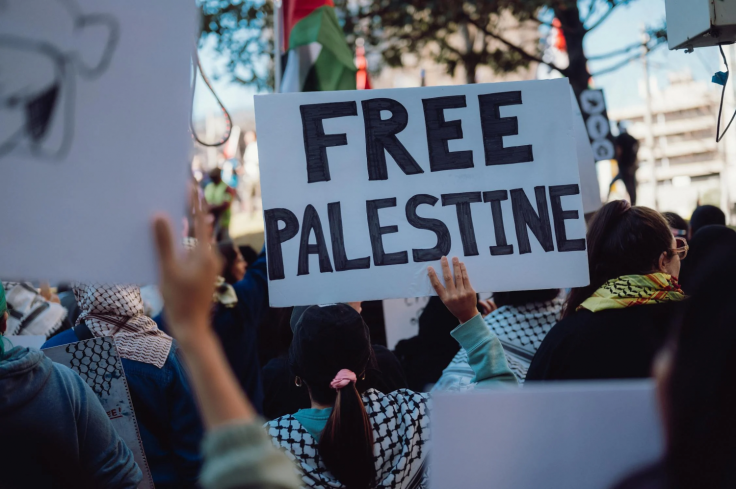In a recent development at Columbia University, New York City police dispersed a pro-Palestinian encampment set up by protesters on the university's South Lawn. The event, which unfolded amid escalating tensions, resulted in the arrest of dozens of students and sparked debates over campus safety, free expression, and institutional policies.

Encampment and Police Intervention
The confrontation began early Wednesday morning when approximately 100 protesters erected 50 tents on Columbia University's South Lawn. The demonstrators, aligned with the Columbia University Apartheid Divest coalition, aimed to pressure the university into divesting from companies allegedly profiting from "Israeli apartheid, genocide, and occupation in Palestine." Despite warnings of potential consequences, the protesters remained steadfast in their demand for action.
Videos circulating on social media captured the dramatic scene as New York City police officers entered the encampment on Thursday afternoon, playing audio recordings urging attendees to disperse or face arrest. According to reports from The New York Times, enough protesters were detained to fill at least three buses, and the encampment's tents were dismantled. While the exact number of arrests remains undisclosed, the police action marked a significant escalation in the ongoing dispute.
Introduction of New Protest Rules and Student Suspensions
In response to the encampment and subsequent police intervention, Columbia University introduced new protest regulations, imposing restrictions on protest hours and requiring students to register demonstrations two days in advance. Furthermore, students participating in the unauthorized encampment faced immediate suspension, as announced by a university spokesperson. The disciplinary measures extended beyond Columbia's campus, affecting three Barnard College students, including Isra Hirsi, daughter of Minnesota Democratic Congresswoman Ilhan Omar.
Barnard College, affiliated with Columbia University, issued statements emphasizing its commitment to maintaining an inclusive and harassment-free environment for its students. The college revealed that students involved in the encampment received written warnings before facing suspension. The swift disciplinary actions underscored the administration's stance on upholding institutional policies and ensuring the safety of the campus community.
Campus Response and Congressional Testimony
The timing of the protest coincided with Columbia University President Minouche Shafik's appearance before Congress to address issues of antisemitism and free expression on campus. While Shafik primarily focused on faculty investigations related to antisemitic remarks, committee member Ilhan Omar raised concerns about student punishments for alleged associations with terrorism. Shafik defended the university's response, citing the seriousness of the incidents and students' non-compliance with investigations, which led to their suspensions.
The incident prompted Columbia University and Barnard College to implement temporary access restrictions on campus, limiting entry to individuals with university IDs. These measures aimed to address evolving circumstances and ensure the safety and well-being of the campus community amidst heightened tensions.
The clash between pro-Palestinian protesters and Columbia University administration underscores the complex intersection of activism, institutional policies, and campus safety. As universities navigate contentious issues, such as divestment and free expression, they face the challenge of balancing academic freedom with upholding disciplinary standards. The events at Columbia University serve as a poignant reminder of the ongoing dialogue surrounding Palestinian rights and the role of educational institutions in addressing global conflicts.
© 2026 University Herald, All rights reserved. Do not reproduce without permission.








